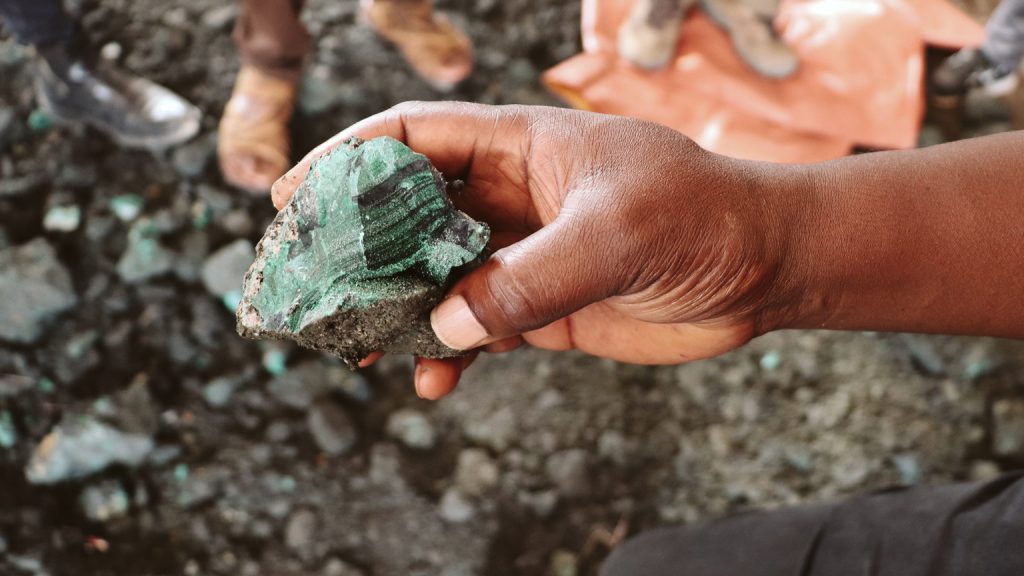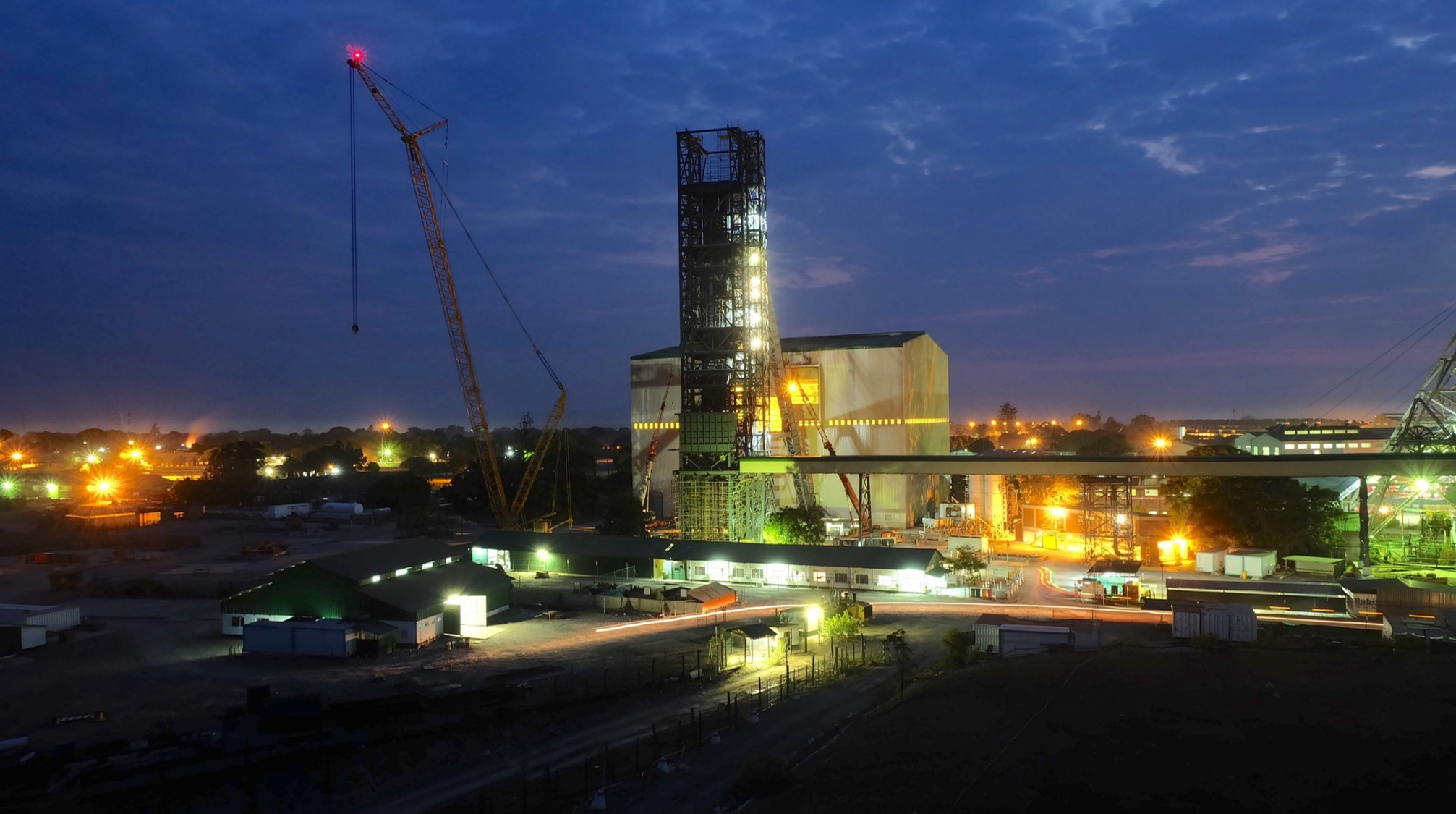Deal for key metal in EV revolution brought bonanza for newcomer

A transfer of lucrative cobalt and copper assets by the Democratic Republic of Congo’s state mining company enabled a little-known investor to make $40 million within weeks.
The transaction and almost immediate resale of control of the assets to Eurasian Resources Group is the latest deal in Congo to face scrutiny by anti-graft campaigners. Alleged corruption in mining transactions in the central African nation has led to financial sanctions and multiple ongoing investigations by law-enforcement agencies around the world.
Congo dominates global production of cobalt, a key ingredient in the rechargeable batteries that power electric vehicles. Luxembourg-registered ERG owns one of the largest copper-cobalt projects in the country, which is at the forefront of the company’s efforts to position itself as a major player in the revolution toward more environmentally friendly transportation.
A little over two years ago, ERG expanded its pool of raw materials by striking a deal in which French national Elie-Yohann Berros played a highly profitable intermediary role.
Signing bonus
On Nov. 7, 2018, state miner Gecamines leased rights to process billions of dollars worth of copper and cobalt reserves to Evelyne Investissement SAU, an entity Berros had created two months earlier, according to a copy of the agreement, Congolese corporate records and an ERG filing. In exchange, Evelyne made an initial $10 million payment, the documents show. Later in the same month, Gecamines signed off on Berros’ sale of 51% of Evelyne to ERG for $50 million, according to ERG’s annual report.
The state miner still stands to gain hundreds of millions of dollars from the deal through royalties and a signing bonus, according to the contract.
Gecamines — once one of the world’s biggest copper producers until years of mismanagement nearly bankrupted the company — could have blocked the share transfer under its contract with Berros’ firm. Gecamines didn’t respond to questions submitted to Chairman Albert Yuma. Former Chief Executive Officer Sama Lukonde, who became Congo’s prime minister Feb. 15, didn’t reply to questions sent before his appointment. Lukonde wasn’t CEO when the Evelyne transaction took place.
ERG and Berros declined to comment on what value he brought to the deal with the state miner and why ERG needed him as an intermediary to acquire the rights. ERG’s spokeswoman declined to clarify when the company first expressed an interest in securing the minerals that Gecamines transferred to Evelyne.
The US Treasury said Gertler had used his friendship with former Congolese President Joseph Kabila to operate as a “middleman” between multinational mining companies and the state
‘Deeply concerning’
Berros, 38, doesn’t appear to have experience in copper and cobalt mining, and Bloomberg couldn’t find any evidence that he’d ever done business in Congo before 2018, though his Paris-based lawyer, Patrick Klugman, says he did.
Neither Berros nor ERG would provide information in response to Bloomberg’s questions about the terms of their partnership or confirm if Berros is expected to finance 49% of Evelyne’s contractual obligations and costs. Berros and Klugman say the Frenchman borrowed the $10 million he advanced to Gecamines.
“It is deeply concerning that ERG did not purchase this asset from Gecamines directly, but instead appears to have acquired it via Berros, a man with no public track record in DRC,” said Margot Mollat, a campaigner at Global Witness, a London-based corruption-watchdog that has investigated Berros’ business activities. “As a result, it appears that Gecamines may have lost out and within weeks Berros walked away $40 million richer.”
Gertler links
While the financial details of the transactions in late 2018 haven’t previously been reported, in July Bloomberg and anti-corruption organizations revealed links between Berros and Israeli billionaire Dan Gertler, who was sanctioned by the US government in December 2017 for alleged corruption in Congo, which Gertler has denied. Global Witness and the Platform to Protect Whistleblowers in Africa, known as Pplaaf, described Berros as a “frontman” for Gertler in a joint report.
In one example, the Frenchman created a Hong Kong-registered company with the same distinctive name as one of the Israeli’s holding companies — Fleurette Mumi Holdings — a week after the US sanctions were announced.
Berros told Global Witness in April he mistakenly believed he had obtained Gertler’s permission to set up the company through a mutual acquaintance, before the U.S. Treasury unveiled its measures. Gertler’s lawyers told Bloomberg in June that Berros used the Fleurette Mumi name without his knowledge. Both Berros and Gertler, 47, deny any association with each other.

President’s friend
Placing sanctions on the businessman, the US Treasury said Gertler had used his friendship with former Congolese President Joseph Kabila to operate as a “middleman” between multinational mining companies and the state. The Evelyne transactions took place a month before elections to choose Kabila’s successor after nearly two decades in power.
ERG said in corporate filings in November 2020 it had hired a “leading global law firm” to review the Evelyne deal after “adverse media reporting” suggested a party to the arrangement was “connected” to an individual subject to US sanctions. The company declined to identify the law firm in response to questions from Bloomberg, but said it found no reason to support claims that Berros represented Gertler.
The internal investigation uncovered no “wrongdoing, nor evidence that a party to the relevant transaction was acting on behalf of a sanctioned individual,” a company spokeswoman said in an emailed response to questions for this article. “It is ERG’s policy to conduct its business activities in strict compliance with all applicable sanctions laws and regulations.”
A spokesman for Gertler told Bloomberg that ERG informed the businessman that its investigation “found no connection whatsoever” between Evelyne and the Israeli. He said Gertler cannot comment on Evelyne’s activities because he isn’t involved with the company.
Sanctions eased
On Jan. 15, in the final days of the Trump administration, the U.S. Treasury Department eased sanctions on Gertler and his companies for 12 months without explanation. Bloomberg has reported that the Biden administration is likely to reverse that decision.
Gertler said in an emailed statement that the Treasury Department’s reprieve was based on his commitment “to comply with the terms and conditions” set by Treasury’s Office of Foreign Assets Control.
“Moving forward, transparency and accountability will be the foundation of our business, and we will work hand in hand with law enforcement, civil society and international organizations to guarantee this,” he said.
One of Gertler’s lawyers, Alan Dershowitz, served as President Donald Trump’s attorney in his first impeachment trial. In an email, Dershowitz said he did not discuss Gertler’s case with Trump.
Another lawyer representing Gertler said he sued Global Witness and Pplaaf for defamation following the publication of their claims, while Klugman says Berros filed a criminal complaint against them in Paris.
Both organizations said they haven’t received a copy of the lawsuits. “If a trial is held, we are confident that Pplaaf’s good faith will be recognized given the quality of the investigation carried out,” Pplaaf’s director, Henri Thulliez, said in an emailed statement.
SFO investigation
ERG holds assets, including several mining projects in Congo, that belonged to Eurasian Natural Resources Corp., a company that was listed on the London Stock Exchange. The U.K.’s Serious Fraud Office has been investigating ENRC since 2013 for alleged corruption in its deals in Congo, including several where Gertler acted as an intermediary acquiring assets from Congo’s state-owned mining companies before ERG bought them at a higher price within months.
ERG is owned by the same shareholders that controlled ENRC. The ongoing probe hasn’t resulted in charges against ENRC and the company denies any wrongdoing.
According to ERG’s 2019 annual report, the reserves Gecamines leased to Evelyne, which are known as tailings — historic mining waste that can be reprocessed using modern technology — may contain the equivalent of 2 million tons of copper. Berros told Global Witness in June that they may hold more than 2.5 million tons of copper and almost 230,000 tons of cobalt.
At today’s prices, the raw value of the minerals is more than $18 billion, according to ERG’s estimated reserves, and more than $30 billion using Berros’ estimates, before the significant costs of processing them and the removal of insufficiently high-grade ore. Under its contract with Evelyne, Gecamines will eventually receive a 2.5% royalty on gross revenue and a signing bonus that could climb to almost $470 million — less the $10 million already paid — using current mineral prices and if Berros’ figures are accurate.
The tailings, which stretch for miles in grayish heaps just outside the southeastern mining hub of Kolwezi, are a reminder of Gecamines’ glory days. Now — like most of Gecamines’ most valuable assets — they’re under private control. Evelyne’s five tailings dumps overlap with permits controlled by Glencore, Ivanhoe Mines, and the Sicomines project, a $3.2 billion joint venture between Gecamines and several Chinese state-owned companies.
ERG is already processing another tailings dump at its giant Metalkol project not far from the site of Evelyne’s resource. Gertler owns the rights to a 2.5% royalty on Metalkol’s net turnover, which one of his companies bought from Gecamines in 2017. The ERG spokeswoman declined to say if Metalkol’s facility will treat Evelyne’s copper and cobalt.
ERG expects that the use of cobalt in electric-vehicle batteries will quadruple between 2019 and 2025, according to a sustainability report published in October. Once Metalkol reaches full production, the operation will make the company “a major player” in global output of the metal, it said.
(By William Clowes and Michael J. Kavanagh, with assistance from Gina Turner and Jeremy Diamond)
More News
{{ commodity.name }}
{{ post.title }}
{{ post.date }}




Comments